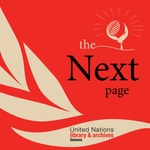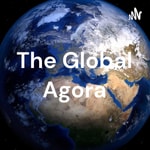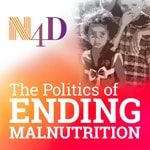Hold Your Fire! – Détails, épisodes et analyse
Détails du podcast
Informations techniques et générales issues du flux RSS du podcast.


Hosted on Acast. See acast.com/privacy for more information.
Classements récents
Dernières positions dans les classements Apple Podcasts et Spotify.
Apple Podcasts
🇬🇧 Grande Bretagne - newsCommentary
12/08/2025#65🇬🇧 Grande Bretagne - newsCommentary
01/08/2025#72🇬🇧 Grande Bretagne - newsCommentary
31/07/2025#57🇬🇧 Grande Bretagne - newsCommentary
30/07/2025#66🇬🇧 Grande Bretagne - newsCommentary
29/07/2025#62🇩🇪 Allemagne - newsCommentary
28/07/2025#70🇬🇧 Grande Bretagne - newsCommentary
24/07/2025#85🇬🇧 Grande Bretagne - newsCommentary
23/07/2025#65🇬🇧 Grande Bretagne - newsCommentary
22/07/2025#64🇬🇧 Grande Bretagne - newsCommentary
21/07/2025#76
Spotify
Aucun classement récent disponible
Liens partagés entre épisodes et podcasts
Liens présents dans les descriptions d'épisodes et autres podcasts les utilisant également.
See allQualité et score du flux RSS
Évaluation technique de la qualité et de la structure du flux RSS.
See allScore global : 73%
Historique des publications
Répartition mensuelle des publications d'épisodes au fil des années.
What Hope for a Gaza Ceasefire and What Happens Without One?
Saison 4 · Épisode 34
lundi 22 juillet 2024 • Durée 42:19
In this episode of Hold Your Fire!, Richard is joined by Crisis Group’s Israel expert Mairav Zonszein, Israel-Palestine director Rami Dajani and U.S. program director Michael Hanna to talk about the latest from Gaza, prospects for a ceasefire and the risks of all-out war between Israel and Lebanese militant group Hezbollah. They discuss how the violence in Gaza has evolved and the recent Israeli strike aimed at killing a top Hamas commander that, according to the local authorities, killed scores of civilians in a designated safe zone. They talk about ceasefire negotiations, whether the two sides have softened their positions on the main stumbling blocks – Hamas’s rejecton of a short-term ceasefire entailing the release of Israeli hostages in exchange for Palestinian prisoners without guarantees that such a truce would lead to a permanent end to hostilities; and Israel’s refusal to agree to end the war without further degrading Hamas – and what governance in Gaza looks like absent a deal. They also cover the risk of a full-scale war between Israel and Hizbollah.
For more, check out our statement A Gaza Ceasefire and our Israel/Palestine country page.
Hosted on Acast. See acast.com/privacy for more information.
Pakistan’s Political Standoff and Surging Militant Violence
Saison 4 · Épisode 33
vendredi 12 juillet 2024 • Durée 46:02
In this episode of Hold Your Fire!, Richard is joined by Crisis Group’s South Asia project director Samina Ahmed to talk about the fallout from the February elections in Pakistan, the deteriorating security in Pakistan’s border regions and Islamabad's relations with Pakistan’s neighbours. They unpack what’s behind the enduring popularity of former Prime Minister Imran Khan and his party, the Pakistan Tehreek-e-Insaf, and their standoff with the country’s political and military establishment. They discuss Khan’s efforts to repair his relations with the military, the legal cases levelled against him and the near-term chances of his release from jail. They also talk about the uptick in militant attacks in Pakistan’s border regions, Khyber Pakhtunkhwa and Balochistan, claimed in part by the Pakistani Taliban, links between that group and the Afghan Taliban, and the strained relations between Islamabad and the authorities in Kabul. Lastly, they touch upon Pakistan’s evolving relations with India.
For more, check out our Pakistan country page.
Hosted on Acast. See acast.com/privacy for more information.
War and Hunger in Gaza and Darfur
Saison 4 · Épisode 24
vendredi 10 mai 2024 • Durée 50:25
In this episode of Hold Your Fire!, Richard is joined by Crisis Group experts Alan Boswell, Shewit Woldemichael, Rami Dajani and Rob Blecher about the latest from Sudan’s western Darfur region and from Gaza. Richard first talks to Alan and Shewit about the worsening violence in North Darfur. As the paramilitary Rapid Support Forces encircle the city of al-Fashar, the last Darfuri capital held by the Sudanese army, and both sides build up forces, they talk about the implications of an all-out battle for the city. They also discuss the legacy of the 2020 Juba peace agreement and why some Darfuri former rebels have now chosen to fight alongside the Sudanese army against the RSF. Richard then talks to Rami and Rob about Israel’s incursion this past week into Gaza’s southernmost city, Rafah. They discuss prospects for talks over a ceasefire-hostage release deal in Cairo, the views of both Hamas and the Israeli government on what such a deal should entail and Israeli politics around the Rafah offensive. They also talk about the difficulties of aid delivery and famine risks in both Sudan and Gaza.
For more on the topics discussed in this episode, check out our statement Sudan: A Year of War and our report Stopping Famine in Gaza.
Hosted on Acast. See acast.com/privacy for more information.
Russia in Africa
Saison 2 · Épisode 15
vendredi 10 décembre 2021 • Durée 42:47
After a post-Cold War hiatus, Russia is returning to Africa. Through both traditional diplomacy and the deployment of security contractors, Moscow’s influence on the continent is growing. Particularly controversial has been the role of the Wagner Group, a Russian military contractor. In the Central African Republic (CAR), Wagner forces have been at the forefront of operations against rebels. Overall, Russia’s muscular new visibility on the continent has unsettled Western powers.
This week on Hold Your Fire!, Pauline Bax, Crisis Group’s senior Africa adviser, joins Richard Atwood and guest co-host Comfort Ero. Pauline has just written a piece on Russia’s role in CAR. They discuss how Russian mercenaries have shifted battlefield dynamics in that country in the government’s favour and popular perceptions of their gains, both in the capital Bangui and in areas affected by fighting. They discuss how Moscow, which had close ties to former Sudanese President Omar al-Bashir, has navigated Sudan’s revolution. They also talk about Russia’s emerging role in the Sahel, where it has sought to capitalise on anti-France sentiment to win influence. They ask what Russia’s aims are in Africa and what the impact of its increased presence is for Africans themselves.
For more information, explore Crisis Group’s analysis on our Russia and Africa pages.
Hosted on Acast. See acast.com/privacy for more information.
Will Russia Invade Ukraine?
Saison 2 · Épisode 14
vendredi 3 décembre 2021 • Durée 37:14
Over recent weeks, some 100,000 Russian troops have massed on the Ukrainian border -- for the second time this year. Ukrainian officials warn of a potential Russian invasion; Western leaders warn of severe consequences if that happens.
This week on Hold Your Fire! Richard Atwood talks to Crisis Group’s Europe and Central Asia director, Olga Oliker, and Oleg Ignatov, senior Russia analyst. They discuss developments leading to the troop build-up: the breakdown of a ceasefire in eastern Ukraine’s Donbas region between Russian-backed separatists and Ukrainian security forces; and Russian President Vladimir Putin’s increasingly testy statements about Ukraine’s relations with NATO member states. They look at what Putin may hope to gain with the troop deployments, whether Moscow is really prepared to use military force, what a military intervention might entail and how Ukraine and its Western partners might respond. They also look at what Western powers could do to deter an attack.
For more information, explore Crisis Group’s analysis on our Ukraine and Russia pages.
Hosted on Acast. See acast.com/privacy for more information.
Western Policy and Afghanistan’s Humanitarian Devastation
Saison 2 · Épisode 13
vendredi 26 novembre 2021 • Durée 50:22
Afghanistan is on the brink of becoming the world’s worst humanitarian emergency. Western governments responded to the Taliban takeover in August by suspending aid, freezing state assets and imposing stringent sanctions regimes. The country’s economy was plunged into freefall as a result. Government salaries remain unpaid, the financial sector has collapsed and cash is in short supply. Millions of the country’s civilians struggle to access basic necessities and feed their families. The UN has already warned that half the country’s citizens are suffering from extreme hunger. Things only look set to get worse as winter sets in.
This week on Hold Your Fire! Richard Atwood and Naz Modirzadeh talk to Crisis Group’s Afghanistan expert Graeme Smith about this crisis and the responsibility shouldered by Western governments. They talk about the Taliban’s refusal to do much in the way of compromise on draconian policies so far, especially limiting education for girls and women, curtailing women’s right to work and shunning demands for political inclusion. They discuss the dilemma facing Western governments, Washington’s status as an economic gatekeeper, the role played by the Europeans and how Afghanistan’s neighbours have responded to the Taliban takeover. They ask what Western policymakers, particularly in Washington, should do to help humanitarian organisations operate effectively and alleviate the looming emergency.
For more information, explore Crisis Group’s analysis on our Afghanistan page and keep an eye out for our upcoming report.
Hosted on Acast. See acast.com/privacy for more information.
Philippines President Rodrigo Duterte: Populist or Peacemaker?
Saison 2 · Épisode 12
vendredi 19 novembre 2021 • Durée 38:57
Philippines President Rodrigo Duterte’s term ends next June. Abroad, Duterte is arguably best known for a brutal anti-drug campaign which has killed thousands of people, prompting the International Criminal Court to open an official probe into alleged crimes against humanity. Yet Duterte has also nudged along a peace process in the Muslim-majority region of Mindanao, where Duterte himself is from, helping turn the page on a decades-long conflict that had killed 120,000 people.
This week on Hold Your Fire!, Richard Atwood and Naz Modirzadeh are joined by Georgi Engelbrecht, Crisis Group’s senior analyst for the Philippines. They discuss Duterte’s legacy as his term comes to a close. They talk about the splits in Duterte’s own political camp, as his daughter, Sara Duterte-Carpio, registers to run as vice presidential candidate on a rival ticket. They discuss the cost of the violent anti-drug campaign and Duterte’s popularity among Filipinos. They also talk about the peace process in Mindanao, the continued challenge posed by Islamist militancy and Duterte’s failed attempts to open talks with communist rebels. Lastly, they look at Duterte’s foreign policy and efforts to pivot toward closer relations with China.
For more information, explore Crisis Group’s analysis on our Philippines page and read Georgi’s recent Q&A ‘The Philippines: Three More Years for the Bangsamoro Transition’.
Hosted on Acast. See acast.com/privacy for more information.
Bosnia Unravelling?
Saison 2 · Épisode 11
vendredi 12 novembre 2021 • Durée 33:13
Bosnia faces what the current international High Representative to the country, Christian Schmidt, calls “its greatest existential threat of the post-war period”. It is grappling with dual crises that could upend the fragile status quo that has endured since the 1995 Dayton Accords ended Bosnia’s brutal civil war. In October, Milorad Dodik, the de facto leader of the autonomous Serb-dominated region, Republika Srpska, vowed to pull out of state institutions, paving the way for independence or union with neighbouring Serbia. Meanwhile, Bosniaks and Croats have yet to resolve a longstanding electoral dispute and, divided, cannot join together to counter Dodik’s secessionist threats. Both Serbs and Croats threaten to boycott elections planned for 2022.
This week on Hold Your Fire!, Naz Modirzadeh and Richard Atwood are joined by Crisis Group Balkans expert Marko Prelec to talk about the crises. They discuss the motives for the Serbian drive for secession, the ongoing electoral dispute that has left Croats feeling disenfranchised, and the High Representative’s role. They look at quick fixes to calm both crises, the necessity but challenges of constitutional reform and revisiting the framework established at Dayton, and what international actors can do to help.
For more information, explore Crisis Group’s analysis on our Bosnia And Herzegovina page and make sure to read our recent Q&A ‘Grappling with Bosnia’s Dual Crises’.
Hosted on Acast. See acast.com/privacy for more information.
Will Tigrayan Rebels Attack Ethiopia’s capital?
Saison 2 · Épisode 10
vendredi 5 novembre 2021 • Durée 37:06
This week, as Ethiopia’s civil war enters its second year, Tigrayan rebels captured the strategically placed cities of Dessie and Kombolcha, only hours away from the country’s capital Addis Ababa. Prime Minister Abiy Ahmed imposed a state of emergency and exhorted citizens to take up arms to defend the capital. With Tigrayan forces at striking distance, is an all-out assault on the capital imminent?
This week on Hold Your Fire!, Richard is joined by Crisis Group’s Senior Ethiopia Analyst William Davison to discuss what might happen next. They discuss the factors explaining Tigrayan forces’ offensive, the strain on Ethiopia’s federal forces and the impact of Tigrayan gains on Prime Minister Abiy’s position and his ruling party. They look at the war’s international dimensions: Eritrea’s continued involvement, how Djibouti might respond were Tigrayan forces able to reach the Djiboutian border and seek to open supply lines, and the risk Sudan gets sucked in. They discuss what an assault on the capital by Tigrayan forces might entail and how that can be averted.
For more information, explore Crisis Group’s analysis on our Ethiopia page and read our latest briefing Ethiopia’s Civil War: Cutting a Deal to Stop the Bloodshed.
Hosted on Acast. See acast.com/privacy for more information.
The Military’s Dangerous Power Grab in Sudan
Saison 2 · Épisode 9
vendredi 29 octobre 2021 • Durée 38:55
On 25 October, Sudan’s military leaders ousted the country’s civilian government, detaining Prime Minister Abdalla Hamdok and several of his ministers. The coup took place two and a half years after a mass uprising that toppled long-standing ruler Omar al-Bashir. The military, fearful of losing their grip over the economy and of facing judicial action for abuses committed during Bashir’s rule and against protesters, had been reluctant partners in a transitional power-sharing government. Coming less than a year before a planned handover of power to civilians, the power grab was met with fury on the streets. Demonstrations have erupted in a defiant rejection of military rule.
This week on Hold Your Fire!, Naz and Richard are joined by two Crisis Group experts, Murithi Mutiga, Project Director for the Horn of Africa, and Jonas Horner, Senior Analyst for Sudan, to talk about the coup, why it happened and what it means for risks of violence and Sudan’s future. They discuss potential splits within the security forces, the possible role played by outside governments, and the way the African Union and Western powers should respond. They also ask if Sudan’s generals have overestimated their hand and how to walk them back from the brink.
For more information, explore Crisis Group’s analysis on the Sudan page and read our statement ‘Reversing Sudan’s Dangerous Coup’.
Hosted on Acast. See acast.com/privacy for more information.









